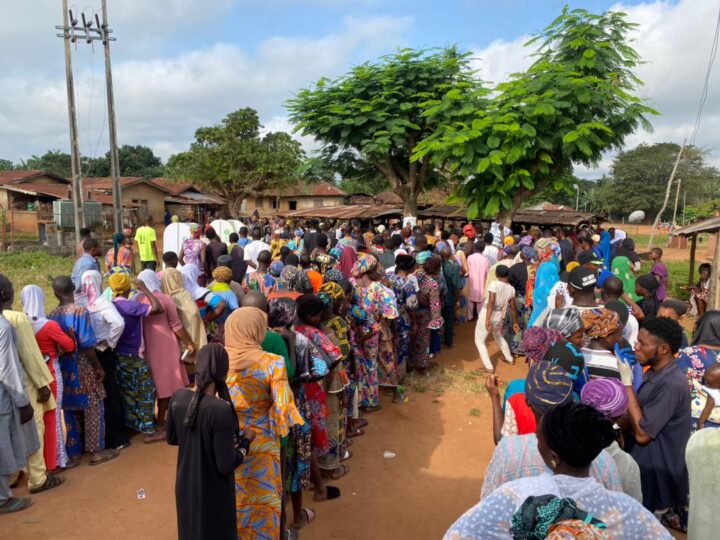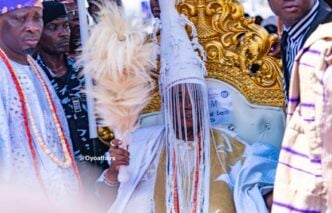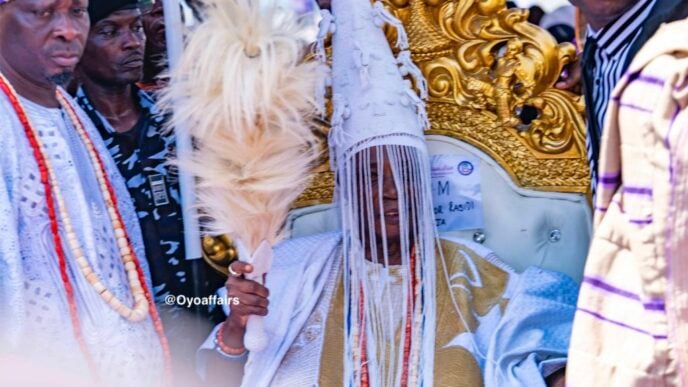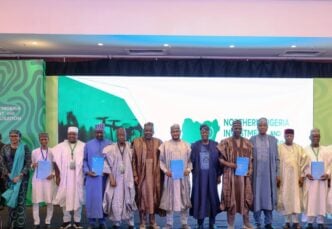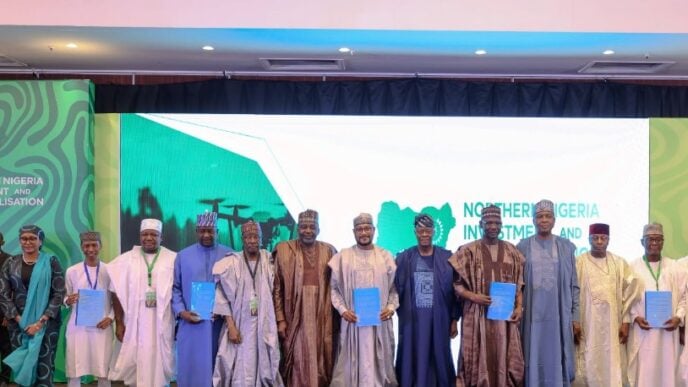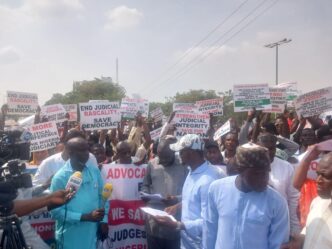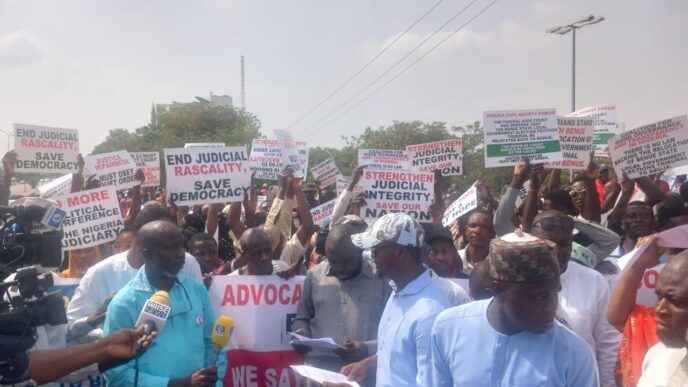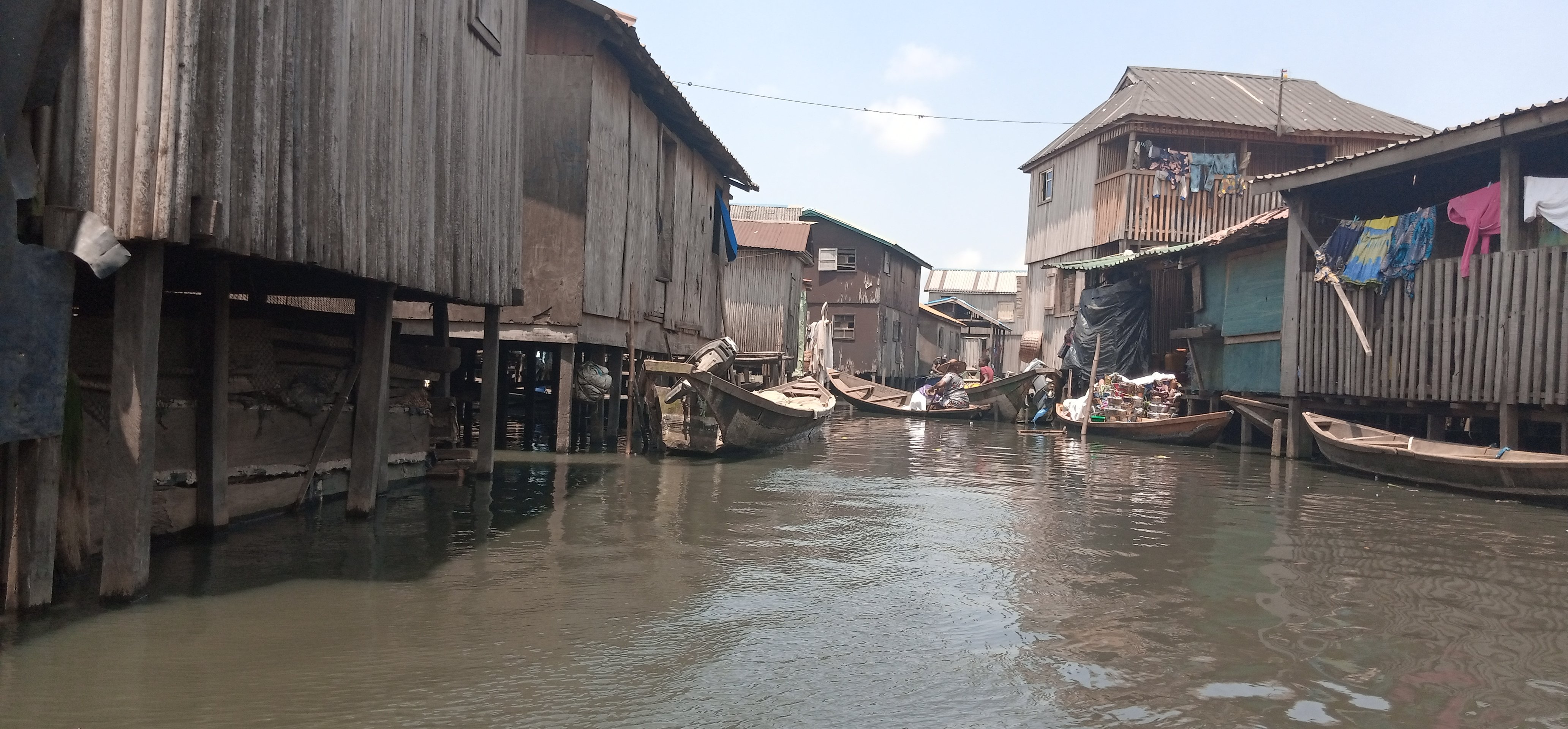A file photo of Nigerians waiting to vote during an election
BY ISAIAH KUMUYI
Nigerians want the best of both worlds. We resist taxes, frown at cost-reflective electricity tariffs, protest toll gates, and fight subsidy removal. Yet, at the same time, we demand free education, reliable power, world-class hospitals, and smooth highways. We want to eat omelette but we do not want to break the egg. We want champagne, but on a zobo budget.
But looking closely, one would realise that Nigerians are hardly to blame for this orientation. For decades, successive generations of our leadership have squandered public wealth with impunity. Visionless and with little regard for tomorrow, they plundered and laundered public patrimony and made it seem to the everyday Nigerian that the surest path out of poverty is politics.
Or, how does one explain the sudden transformation of a person elected chairman in one of the local government areas in mainland Lagos, who not only moves out of the area he grew up in but goes on to purchase prime real estate in the posh areas of Ikoyi – all in three years? When lawmakers earn more than American senators while ordinary people struggle with stagnant wages, resentment is bound to build. If the elite can feed fat without accountability, why should the average Nigerian feel compelled to pay tax or accept higher costs for basic services?
Advertisement
Yet, the hard truth must be told: no nation grows and develops on entitlement. Roads do not pave themselves. The Lagos–Ibadan railway was not built on vibes. Electricity is not conjured by wishful thinking; power plants run on money. Pensions don’t pay out of thin air; they depend on contributions. Someone, somewhere, has to foot the bill, and that someone is us.
Painfully, Nigerians are being misled by a section of the elite, who privately understand the necessity of reforms, but publicly fan the flames of anger. They lead the masses to hate on the Tinubu administration, not because they believe subsidies and artificial pricing are sustainable, but because it is politically profitable to weaponise pain. It is easy to rile up a trader in Alaba about fuel prices without explaining that fuel subsidies were costing Nigeria more than education and healthcare combined. It is simple to stir outrage about electricity tariffs without mentioning that DISCOS can’t improve supply if they keep selling below cost. (Although DISCOS too have a lot to do on their parts.)
This is why mass education in political economy is urgent. People need to understand how government revenue works. They need to know why tariffs rise, why taxes matter, and why subsidies, however popular, often bankrupt the state. Imagine if every citizen knew that Nigeria’s oil windfall was burnt on subsidies that mostly benefitted smugglers in neighbouring countries. Or that the billions lost yearly to tax evasion could fund new schools and hospitals. With knowledge comes power, not just to endure reforms, but to demand accountability for every naira spent.
Advertisement
But let us be clear: citizens will only buy into sacrifice if leaders show restraint. Nigerians will not tighten their belts while politicians add new holes to theirs. If members of the national assembly still earn figures that are shrouded in opacity, if governors continue to get increased FAAC allocations without commensurate benefits to their people, if public officials still treat public funds like personal wallets, then reforms will look like punishment and not policy.
Nigeria is at a crossroads. We either continue chasing a socialist utopia fuelled by elite waste, or face the reality that progress has a price. If we choose knowledge and responsibility, we stand a chance at real nationhood. If not, we remain stuck in the cycle of denial: demanding everything, paying nothing, and blaming everyone.
Nigeria will rise the day we stop demanding miracles and start putting in the work for the progress we seek. That progress will not come free; it will be purchased with knowledge, honesty, and sacrifice – with compelling example from leadership.
May God bless Nigeria.
Advertisement
Isaiah Kumuyi writes from the University of Lagos.
Views expressed by contributors are strictly personal and not of TheCable.
